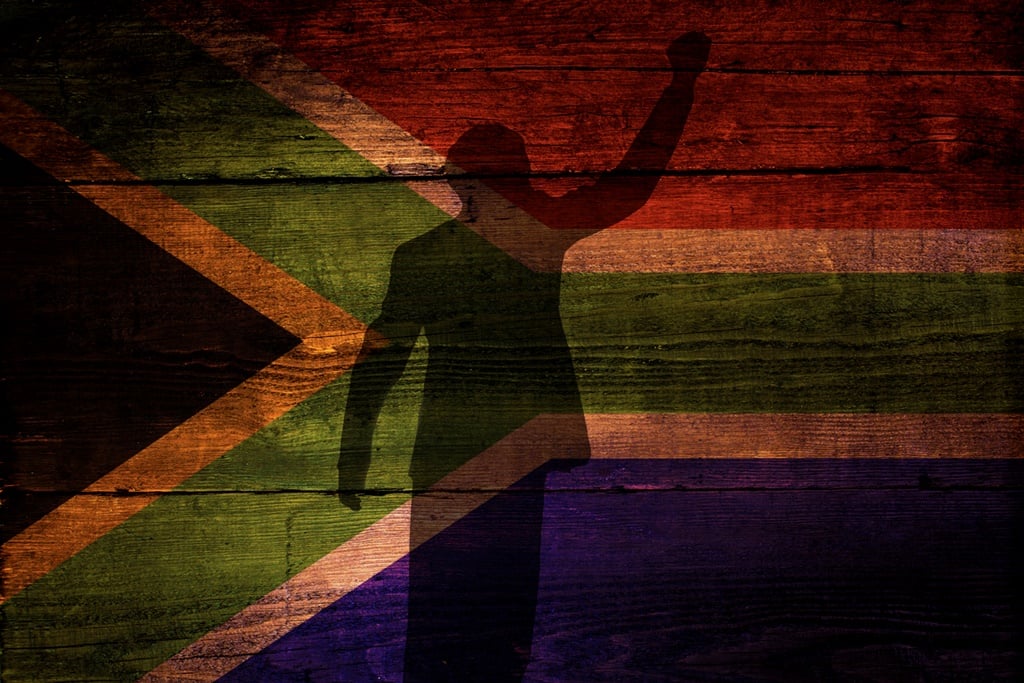
Celebrating an annual birthday – replete with candles, cake and cards – isnot an abaThembu tradition, nor isit something Nelson Mandelagrew up with. While Mandela Dayhas been a useful marker to remind us of the principles he fought for, perhaps it’s time to add an African element to the Mandela Day project, writes Anna Trapido.
While there were many rites of passage in Nelson Mandela’s childhood, the celebration of his birthday was not one of them. The abaThembu culture, from whence he came, recognises medium- and long-term life stage transitions. Often such recognition is collective and occurs within a relatively broad age set. The mere existence of an individual for another 365 days is not specifically rewarded.
This year, most urban and some rural South African children expect such annual festivities, but it was not ever thus. In July 1918, imbeleko (a birth ritual) was almost certainly performed to welcome baby Rolihlahla Mandela into the spiritual and social community of Mvezo. His autobiography describes ceremonies associated with his ulwaluko, the transition from boyhood to manhood. There are no accounts of cake, candles and cards, or western-style birthday parties.
As a young Johannesburg man about town, Mandela occasionally participated in the birthday bashes of others. In 2007, his friend and comrade Amina Cachalia recollected her 21st birthday party in 1950 when Madiba, Yusuf Cachalia, Arthur Goldreich and Robert Resha tried and failed to make her a celebratory supper of pigeon curry.
Madiba was a sociable person who liked all sorts of parties, but there is no record of birthday parties in Vilakazi Street until he was released from prison.
Prison and parties are seldom compatible. Madiba spent July 18 1966 on hunger strike with his Robben Island comrades protesting their very poor living conditions.
In Madiba’s prison papers, the date that he repeatedly mentioned and marked each year with poignant pleasure was March 10 1957, which was the anniversary of his first date with Nomzamo Winnie Madikizela.
In a letter from Robben Island to his wife dated June 20 1970, he wrote: “Perhaps, no, I am sure, the good old days will come when life will sweeten our tongues and nurse our wounds. Above all, remember March 10. That is the source of our strength. I never forget it.”
So how is it that the man who wasn’t particularly bothered about birthdays ended up with an annual international event, complete with UN declarations and singing pop stars?
For this we can blame/thank international Anti-Apartheid Movement (AAM) activists, many of whom came from cultures where birthdays have long been considered to be significant life stage markers.
While the Free Mandela campaign was initiated by South Africa’s Sunday Post newspaper, the specific focus on his birthday came to the fore on July 18 1978 when Mandela turned 60 in prison and the UN Special Committee Against Apartheid called for the occasion to be recognised worldwide.
The British AAM organised for 10 000 birthday cards to be sent to Robben Island.
Former prison warder Christo Brand has described how all such post was dumped into the prison incinerators without reaching Madiba. That year Winnie Mandela applied for but was refused permission to visit her husband on his birthday.
The AAM strategy evolved and culminated in the 1988 Nelson Mandela: Freedom at 70 concert at Wembley Stadium. From there it was a hop, skip and a jump to the modern Mandela Day.
Cynics argue that Mandela Day erroneously personalises the political and sacrifices the mass actions of many on the altar of hagiography. Secular saint symbolism within a nation-building myth has emerged.
The symbolism might be personalised, but it was never personal. Madiba claimed no such saintly status and to do so runs contrary to the collective approach he consistently displayed in life.
Madiba’s first birthday after becoming president of South Africa reveals his commitment to ensuring that the symbol did not to subsume the objectives it was created to represent.
On Saturday, July 20 1994 the presidential guest house in Pretoria thronged with more than 1 000 veterans representing the ANC, Pan Africanist Congress of Azania, SA Communist Party, SA Congress of Democrats, Liberal Party of SA, the black consciousness movement and Black Sash.
The veterans sat down to a slap-up lunch of pot-roasted beef, cinnamon pumpkin, pap and gravy that allowed Madiba “to celebrate my birthday with my peers... It is wonderful to meet with so many old friends, comrades and combatants who stood firm in their fight for peace and justice.
We should not forget those who never returned to enjoy with us the fruits of victory”.
The fact that Madiba didn’t mark his birthday as a child doesn’t undermine Mandela Day’s local or international value.
It does, however, suggest space to add an African element. During the struggle against apartheid the political use of Madiba’s birthday as a target to focus the fight for freedom was extremely effective.
In the democratic era it has been an annual reminder of the principles for which he fought.
The challenge is to find practical ways of turning principles into reality.
Annual markers have been and will continue to be useful, but at this point in South Africa’s history perhaps alternative ways of looking at the passing of time should be incorporated into the Mandela Day project – most notably the life stage change signified by initiation into adulthood.
In all cultures, children are learning and grownups have a greater responsibility to get things right.
This year represents a significant national milestone in that it is the 25th anniversary of democracy. At what point does “our young democracy” become an adult? How much more is expected of all those who live in a state of maturity?




 Publications
Publications
 Partners
Partners









